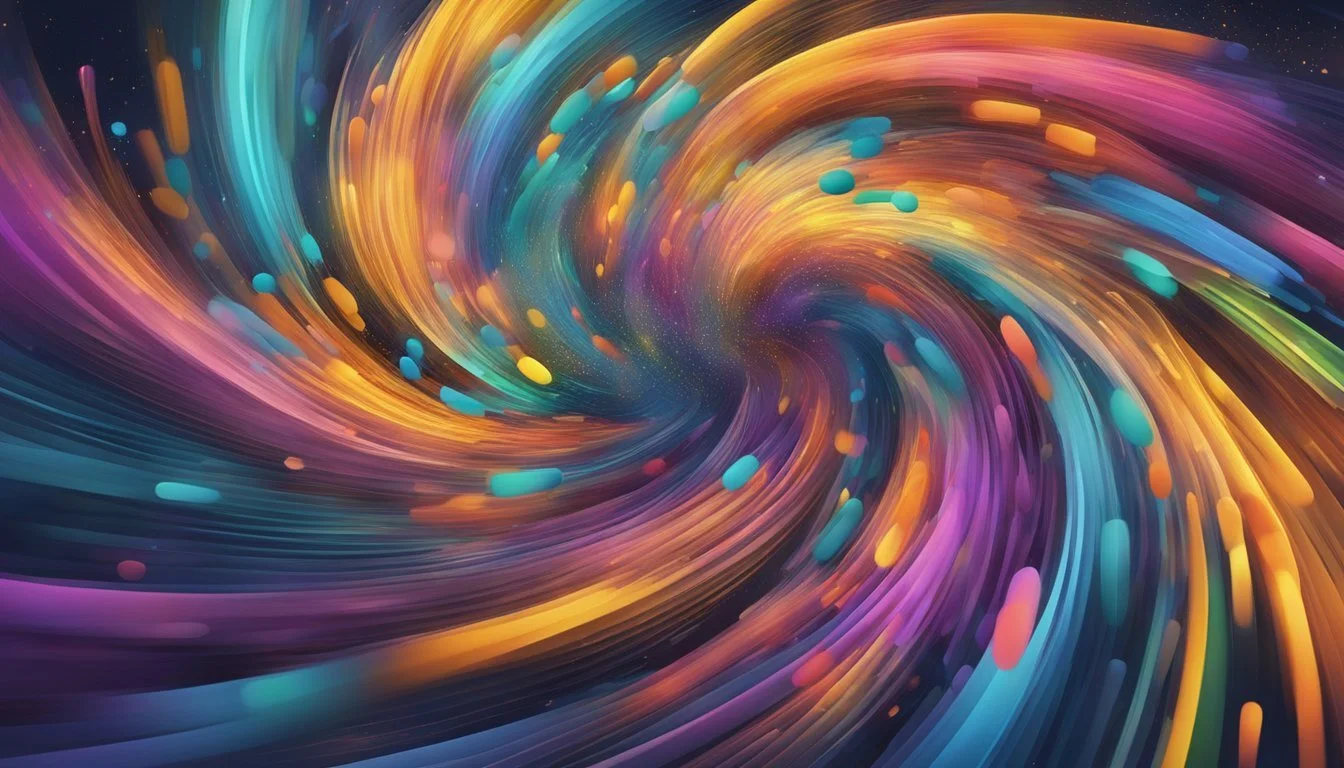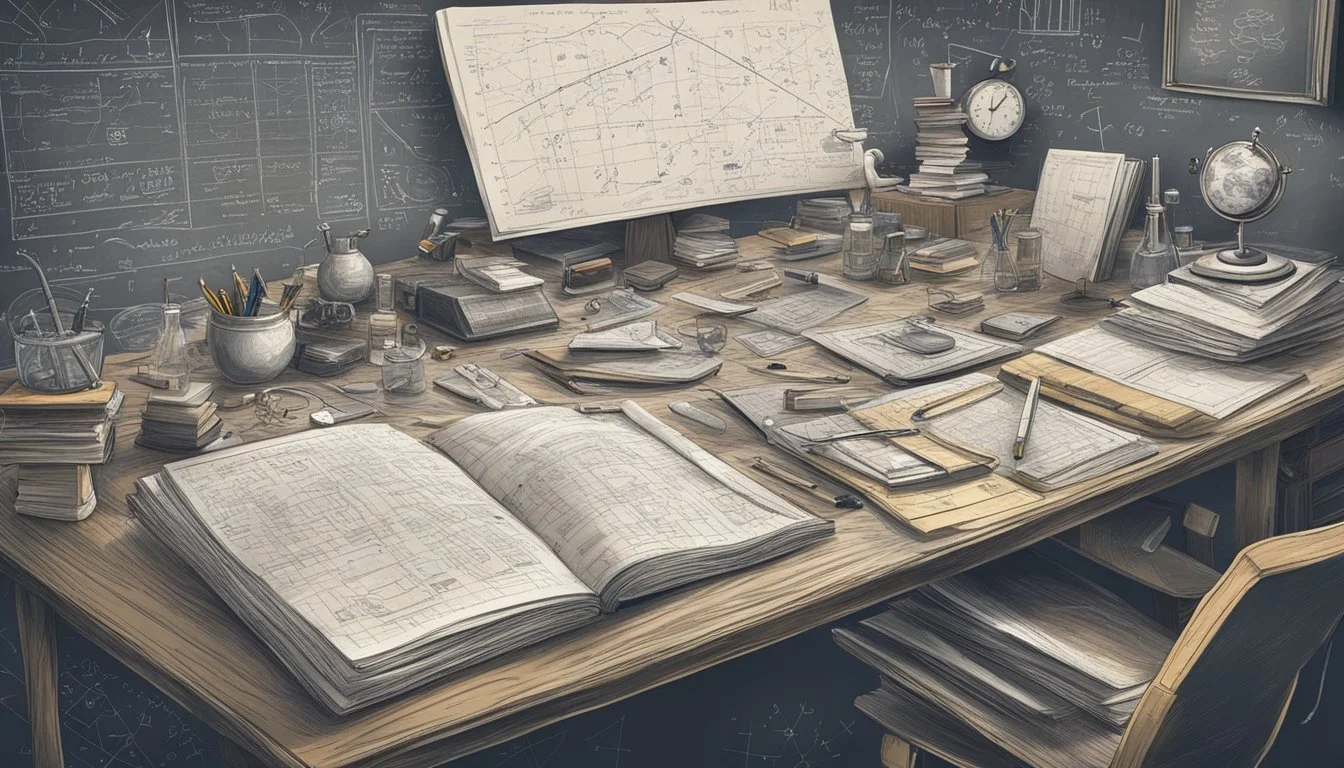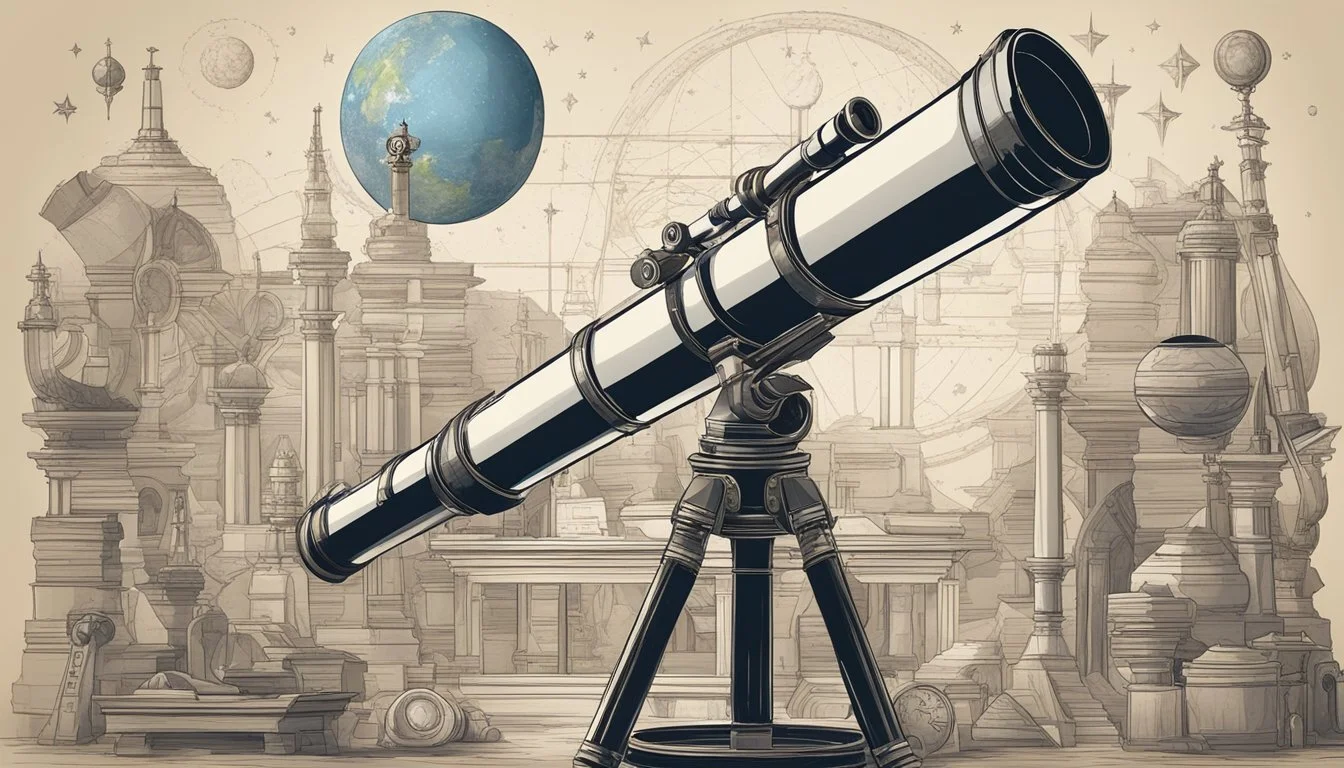9 Documentaries About Scientific Breakthroughs That Were Almost Lost to History
Rediscovering Forgotten Innovations
Scientific breakthroughs have shaped the course of human history, yet many groundbreaking discoveries were nearly lost to time. Documentaries offer a unique window into these pivotal moments, revealing the challenges and triumphs of researchers who pushed the boundaries of knowledge.
These films not only educate viewers about significant advancements but also highlight the perseverance required to bring them to fruition. From medical innovations to technological leaps, the stories behind these breakthroughs inspire and remind us of the importance of scientific progress. By exploring nine documentaries that showcase near-forgotten discoveries, we gain insight into the often-precarious nature of scientific advancement.
1) The Race for the Double Helix
"The Race for the Double Helix" is a 1987 television film that depicts the discovery of DNA's structure. Also known as "Life Story" in some regions, it dramatizes the competitive quest to unravel one of science's greatest mysteries.
The film stars Jeff Goldblum as James Watson and Tim Pigott-Smith as Francis Crick. It portrays their race against other scientists, including Linus Pauling, Maurice Wilkins, and Rosalind Franklin, to determine DNA's structure.
Originally produced for BBC's Horizon science series, the film offers insight into the scientific process and the sacrifices made by researchers. It showcases the diligent research, creative analysis, and perseverance required for groundbreaking discoveries.
The documentary-style drama highlights the competitive nature of scientific research. It illustrates how Watson and Crick's work in the early 1950s led to their pivotal discovery in 1953, forever changing our understanding of genetics.
Learn more about the film on Wikipedia
2) Particle Fever
Particle Fever documents the launch of the Large Hadron Collider (LHC) at CERN, the world's largest and most powerful particle accelerator. The film follows six scientists as they prepare for and conduct groundbreaking experiments.
Director Mark Levinson captures the excitement and tension surrounding the LHC's first run in 2008. The documentary showcases the collaborative efforts of thousands of scientists and engineers from around the globe.
Particle Fever highlights the search for the elusive Higgs boson, a fundamental particle predicted by the Standard Model of particle physics. The film conveys complex scientific concepts in an accessible manner, making it engaging for both experts and general audiences.
The documentary offers a rare glimpse into the world of theoretical and experimental physics. It showcases the dedication and passion of scientists working at the forefront of human knowledge.
Particle Fever received critical acclaim for its ability to convey the human story behind a massive scientific endeavor. The film demonstrates the importance of curiosity-driven research and international cooperation in advancing our understanding of the universe.
Learn more about Particle Fever
3) The Beginning of Life
"Origins: How Life Began" explores the fundamental question of how life emerged on Earth. This documentary delves into cutting-edge research on the origins of life, presenting theories and experiments that shed light on this enigmatic process.
The film examines various hypotheses, including the primordial soup theory and the role of hydrothermal vents in early life formation. It showcases the work of scientists attempting to recreate the conditions of early Earth in laboratory settings.
Through stunning visuals and expert interviews, "Origins" takes viewers on a journey through time, from the formation of our planet to the emergence of the first self-replicating molecules. The documentary highlights the challenges faced by researchers in unraveling this ancient mystery.
"Origins: How Life Began" emphasizes the importance of continued scientific inquiry into life's beginnings. It presents a balanced view of competing theories while maintaining a sense of wonder at the complexity of life's origins.
[https://www.imdb.com/title/tt5123000/]
4) The Immortal Life of Henrietta Lacks
The Immortal Life of Henrietta Lacks tells the extraordinary story of a woman whose cells revolutionized medical research. In 1951, Henrietta Lacks, an African American tobacco farmer, sought treatment for cervical cancer at Johns Hopkins Hospital.
Unbeknownst to Lacks, doctors took samples of her cancer cells during a biopsy. These cells, later named HeLa cells, displayed an unprecedented ability to survive and replicate in laboratory conditions.
HeLa cells became the first "immortal" human cell line, continuously dividing and multiplying. This unique characteristic made them invaluable for scientific research, contributing to numerous medical breakthroughs.
The documentary explores the ethical implications of using Lacks' cells without her knowledge or consent. It also delves into the impact on her family, who remained unaware of their mother's contribution to science for decades.
Directed by George C. Wolfe and starring Oprah Winfrey, the film brings Rebecca Skloot's bestselling book to life. It sheds light on the intersection of medical ethics, racial inequalities, and scientific progress.
[https://en.wikipedia.org/wiki/The_Immortal_Life_of_Henrietta_Lacks_(film)]
5) Einstein's Big Idea
"Einstein's Big Idea" is a 2005 NOVA documentary that explores Albert Einstein's groundbreaking equation E=mc². The film dramatizes the remarkable story behind this famous formula and its impact on modern physics.
The documentary delves into Einstein's revolutionary discoveries in 1905, known as his "miracle year." It showcases how E=mc² changed our understanding of energy, mass, and the fundamental nature of the universe.
"Einstein's Big Idea" not only focuses on Einstein himself but also highlights the contributions of other scientists whose work laid the foundation for his theory. The film brings to life the historical context and scientific developments that led to this monumental breakthrough.
Through a combination of dramatic reenactments and expert interviews, the documentary makes complex scientific concepts accessible to a general audience. It demonstrates how Einstein's equation continues to influence our world today, from nuclear energy to our understanding of the cosmos.
6) Galápagos: Darwin's Study
The Galápagos Islands played a crucial role in shaping Charles Darwin's theory of evolution. These remote volcanic islands in the Pacific Ocean became a living laboratory for Darwin's groundbreaking research.
Darwin visited the Galápagos during his voyage on the HMS Beagle in 1835. He observed unique species found nowhere else on Earth, including giant tortoises and marine iguanas. These observations sparked his ideas about natural selection and adaptation.
The 2006 BBC documentary series "Galápagos" explores the islands' natural history and their impact on scientific understanding. It showcases the diverse ecosystems and endemic species that make the Galápagos a hotbed of evolutionary study.
The series highlights how the islands' isolation led to the development of distinct plant and animal species. It also examines ongoing research and conservation efforts to protect this UNESCO World Heritage Site.
"Galápagos" brings Darwin's study to life, demonstrating how these islands continue to be a source of scientific discovery and inspiration for researchers today.
https://en.wikipedia.org/wiki/Gal%C3%A1pagos_(TV_series)
7) Cosmos: A Spacetime Odyssey
Cosmos: A Spacetime Odyssey is a groundbreaking science documentary series that aired in 2014. Hosted by renowned astrophysicist Neil deGrasse Tyson, the show serves as a follow-up to Carl Sagan's iconic 1980 series Cosmos: A Personal Voyage.
The 13-part series explores the vastness of the universe and the intricacies of scientific discovery. It combines stunning visual effects with engaging storytelling to make complex scientific concepts accessible to a wide audience.
Tyson guides viewers through the history of scientific breakthroughs, covering topics from the formation of the universe to the evolution of life on Earth. The show uses a cosmic calendar to illustrate the 13.8 billion-year history of the universe, condensing it into a single year.
Cosmos: A Spacetime Odyssey brings science back to network television, presenting cutting-edge scientific knowledge in an engaging and visually captivating manner. It profiles scientific heroes spanning 5,000 years, highlighting their contributions to our understanding of the universe.
https://en.wikipedia.org/wiki/Cosmos:_A_Spacetime_Odyssey
8) Apollo 11
Apollo 11 is a remarkable documentary that brings the historic 1969 moon landing mission to life. Released in 2019, the film showcases previously unseen 70mm footage and audio recordings from NASA's archives.
Director Todd Douglas Miller meticulously restored and compiled this material to create a captivating visual experience. The documentary offers an intimate look at the astronauts, mission control, and the millions of spectators who witnessed this groundbreaking event.
The film eschews narration and interviews, allowing the archival footage to tell the story. This approach immerses viewers in the mission, from launch preparations to the lunar landing and the triumphant return to Earth.
Apollo 11 received critical acclaim for its innovative storytelling and technical achievements. It won numerous awards, including the BAFTA for Best Documentary.
The documentary serves as a testament to human ingenuity and the collaborative effort that made the moon landing possible. It offers a fresh perspective on a well-known historical event, captivating audiences with its stunning visuals and authentic portrayal of this scientific milestone.
https://en.wikipedia.org/wiki/Apollo_11_(2019_film)
9) The Codebreaker Who Hacked Hitler
"The Codebreaker Who Hacked Hitler" is a compelling documentary that sheds light on the unsung heroes of World War II cryptanalysis. The film focuses on Gordon Welchman, a brilliant mathematician who played a crucial role in breaking Nazi Germany's Enigma code.
Welchman worked alongside Alan Turing at Bletchley Park, Britain's codebreaking headquarters. His innovative approach to codebreaking, including the development of the "traffic analysis" technique, was instrumental in deciphering enemy communications.
The documentary reveals how Welchman's contributions were nearly lost to history due to the secrecy surrounding the Bletchley Park operations. It explores the challenges faced by the codebreakers and the immense pressure they were under to stay ahead of German technological advancements.
Through interviews with historians and Welchman's family members, the film paints a portrait of a man whose genius helped shape the outcome of the war. It also highlights the ethical dilemmas faced by those who had to keep their wartime work secret for decades.
"The Codebreaker Who Hacked Hitler" offers a fascinating glimpse into the world of wartime cryptography and the individuals who made groundbreaking discoveries in the field.
[https://www.imdb.com/title/tt5460666/]
Understanding the Impact of Scientific Documentaries
Scientific documentaries play a crucial role in bridging the gap between complex research and public understanding. They bring cutting-edge discoveries to life, making them accessible and engaging for viewers of all backgrounds.
Inspiring a New Generation of Scientists
Scientific documentaries spark curiosity and enthusiasm in young minds. By showcasing the excitement of discovery, these films motivate students to pursue careers in science, technology, engineering, and mathematics (STEM).
Many renowned scientists cite documentaries as early influences on their career choices. These films provide role models and demonstrate the real-world applications of scientific concepts.
Documentaries also highlight diverse voices in science, encouraging underrepresented groups to enter STEM fields. This representation is crucial for building a more inclusive scientific community.
Influence on Public Perception of Science
Scientific documentaries shape how the general public views and understands scientific research. They translate complex ideas into digestible content, helping viewers grasp the significance of breakthroughs.
These films often humanize scientists, showing their passion and dedication. This personal connection can increase public trust in scientific institutions and findings.
Documentaries also raise awareness about pressing issues like climate change, public health, and technological advancements. By presenting evidence-based information, they combat misinformation and promote scientific literacy.
Well-crafted documentaries can influence policy decisions by educating lawmakers and the public about critical scientific topics. This informed discourse is essential for addressing global challenges effectively.
Challenges in Preserving Scientific Documentaries
Preserving scientific documentaries faces significant obstacles that threaten the longevity of these important historical records. Two key issues stand out: technological obsolescence and funding constraints.
Technological Obsolescence
As video formats evolve, older documentary recordings risk becoming inaccessible. Many scientific breakthroughs from the mid-20th century were captured on now-obsolete media like 16mm film or Betamax tapes.
Without proper transfer to modern digital formats, these invaluable records may be lost forever. The specialized equipment needed to play back aging formats is becoming increasingly rare and expensive to maintain.
Climate-controlled storage is also crucial for preserving fragile film and magnetic tape, but many archives lack such facilities. This puts older documentaries at risk of physical degradation over time.
Funding and Resource Constraints
Limited budgets often force archives and institutions to make difficult choices about which materials to preserve. Scientific documentaries, while historically significant, may be overlooked in favor of more widely recognized content.
The process of digitizing and cataloging large collections of documentaries is time-consuming and expensive. Many organizations lack the staff and resources to tackle such projects comprehensively.
Copyright issues can further complicate preservation efforts. Securing rights to digitize and share older documentaries may involve complex legal negotiations or prohibitive licensing fees.
Competing priorities within scientific institutions may also divert funding away from archival projects. This can leave important documentary collections at risk of neglect or loss.









